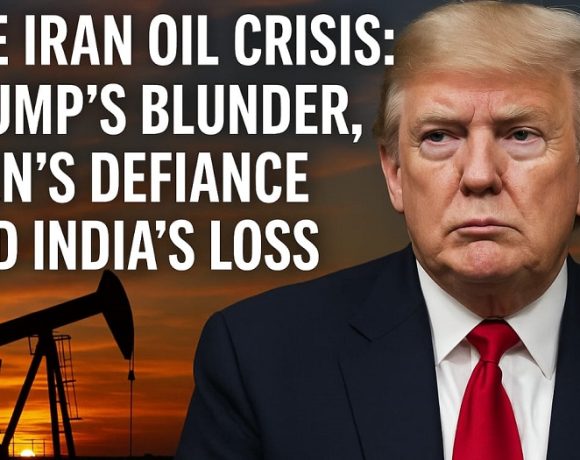
Breaking Down the News: Did Mossad Uncover a Plot Against Adani After Hindenburg’s Report?
In January 2023, the U.S.-based financial firm Hindenburg Research dropped a bombshell report accusing Indian business conglomerate Adani Group of stock manipulation, accounting fraud, and use of offshore shell companies. The aftermath was immediate—billions wiped off in market value, a cancelled ₹20,000 crore public offer, and a media frenzy that framed it as India’s “Lehman moment.” But two years later, new revelations suggest there may have been more to this story than just financial analysis.
Hindenburg’s modus operandi is straightforward: investigate companies, publish damning reports, and short their stock—profiting when prices fall. Their report on Adani was timed just as Chairman Gautam Adani was visiting Israel to finalize a $1.2 billion acquisition of the Haifa port, a deal critical to Indo-Israel ties. The timing raised eyebrows, especially in geopolitical circles.
Fast forward to January 2024: the Supreme Court of India reviewed the matter and concluded that India’s market regulator SEBI could continue its investigation, but saw no need to involve any external or special investigative agency. Crucially, it did not declare Adani guilty. Nor did it provide a clean chit. It simply deferred to the regulator.
Then came January 15, 2025. Hindenburg Research suddenly announced it was shutting down. The timing again drew attention—it was just days before Donald Trump’s second inauguration. This, coupled with a growing backlash from Republican lawmakers, who criticized the U.S. DOJ’s probe into Adani as overreach, shifted the narrative.
But what truly flipped the script was a revelation in April 2025 by Indian fact-checker Vijay Patel. Citing undisclosed sources, Patel claimed that Israel’s intelligence agency Mossad had quietly launched “Operation Zeppelin” in early 2023 during Adani’s visit. Their objective: uncover whether the Adani Group was deliberately targeted to sabotage India’s rising economic influence. Mossad allegedly found a “web” of individuals—including lawyers, hedge funds, journalists, and political operatives—coordinating against Adani from a base in Illinois linked to the Indian Overseas Congress.
While these Mossad findings are yet to be independently verified, the narrative has turned. Adani not only survived the crash but returned stronger. Trump’s administration rolled back anti-bribery enforcement, and Adani’s group committed to investing $10 billion in U.S. infrastructure projects, creating thousands of jobs and reinvigorating India-U.S. business ties.
And so, what began as a financial scandal has transformed into a geopolitical saga—complete with allegations of sabotage, espionage, and high-stakes international business.
In conclusion, Darshan Walawalkar, Partner at Indian data research firm Statscope India, says:
“Adani’s ability to weather a global short-seller assault, secure strategic ports, and relaunch U.S. operations proves that such reports—especially those tied to profit motives—must be taken with a pinch of salt. When facts remain unverified and legal systems haven’t ruled, firms like Hindenburg should be seen as market actors, not moral arbiters.”
This saga serves as a reminder: in today’s world, where finance, politics, and perception collide, the truth is often the last thing to hit the headlines.
This article has been written in consultation with the research experts at Statscope India https://statscope.in/ a leading Indian data intelligence and investigative analytics firm.


















